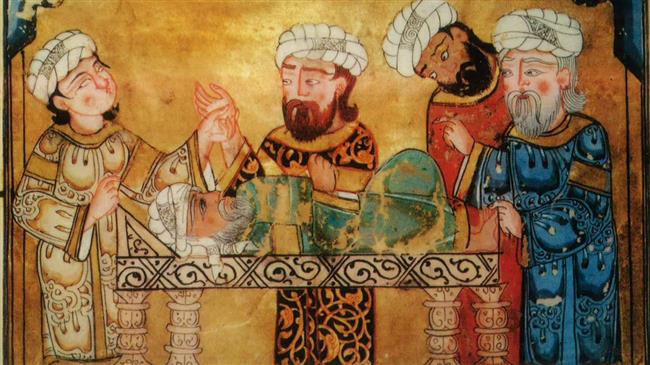Given the wide use of traditional and complementary medical services all over the world, as well as the popularity of traditional medicine with different strata of the Iranian society and its rich historical and cultural background, we at IFP decided to introduce traditional medicine and its place in the Iranian society.
Therefore, first of all, we will give a general outline of this traditional practice, and from now on, we will regularly offer some general recommendations and solutions of Iranian traditional medicine.
In this school of traditional medicine, maintaining health is prioritized over treatment, and the correct principles of lifestyle are presented depending on conditions of each person.
Being one of the most important cultural and civilization works of Iranians from ancient times to date, traditional Iranian medicine is of interest to many people and healthcare sector experts.
Traditional drugs have fewer side effects compared with chemical ones. But this is only one reason why Iranian traditional medicine has become so popular today.
Iranian medicine is a holistic school, which means that in order to correctly diagnose the disease and provide the appropriate treatment, the health of all parts of the body, genetics, living conditions, mental characteristics, age, geographical conditions, etc., must be taken into account to identify the factors that disturb the physical balance of the patient.
In traditional medicine, to treat the disease, the lifestyle and especially the nutrition of the patient is corrected in the first stage.
This done, drug and medical treatment (called therapeutic methods done by hand) such as massage are used to get the desired result. Drug therapy in this school is done very cautiously contrary to what many of self-styled practitioners thereof do.
Basics of traditional Iranian medicine
The foundations of traditional Iranian medicine build on the six principles of health: Air, drinks and food, sleep and wakefulness, movement and stillness, retention and vomiting (retention means the art of keeping what the body needs, and what, if lost due to negligence, illness etc., damages physical health.
Vomiting is the opposite of retention and it means the art of cleaning the body and the mental state of a person from what is harmful.)
In order to have a healthy life, it is necessary to observe the six principles of traditional medicine. Deficiency in any of them will cause damage to health.
Another principle of traditional medicine is the recognition of four mucus. Mucus is a fluid which is moist. This substance is made in the first stage of food digestion and after that, it flows in the veins.
The four mucus in traditional medicine are: Blood, phlegm, melancholia and bile.
The key to health is balance between the four mucus. Factors such as seasons, nutrition, weather, gender, etc. can affect the mixture. Hence, each type has its own unique characteristics.
Blood is about spring and represents passion and childhood. The element of air is directly linked to blood.
Bile is related to summer and represents anger and youth. The element of fire is directly linked to bile.
Melancholia is about autumn and represents sadness and middle age. Earth is the natural element related to melancholia.
Phlegm is related to winter and the old age and it represents lethargy in the future. The natural elements related to phlegm is water.
Moreover, sometimes mucus disorders vary in different body organs. For example, a person may have a stomach with a predominance of blood and a heart with a predominance of melancholia, which ought to be diagnosed by a doctor.
Difference between mucus and temperament in Iranian medicine
One should note that mucus and temperament are two different concepts. In fact, temperaments are defined based on mucus but the six principles that are proportionate to the temperament of each person must be followed properly to maintain the balance of the body.
Excess or deficiency in mucus causes imbalance in the body and predictable changes will occur there.
Sometimes, the dominance of mucus or bad temper or both of them causes a disease.
Knowledge of temperaments in Iranian traditional medicine
Knowledge of temperaments is a key topic in traditional medicine. By knowing the temperament correctly, one can make a sound diagnosis about the cause of some diseases and the type of treatment. The type of nutrition, the amount of rest and the psychological states of a person are, among others, directly related to his mood.
A person’s appearance such as skin color, hair condition, hair growth rate, body muscle size, mental states, etc. can be effective in recognizing their mood. In addition, paleness or flushing of the face, lack of sleep, lethargy, short temper, facial swelling, etc. are possible symptoms of a bad mood that should be treated.
Everything in our surroundings including humans, animals, inanimate objects, etc. have temperament.
The knowledge of mood helps one maintain the balance in the soul and body. This is done through choosing a diet proper for that mood.
Knowledge of temperament tells us that all foods are classified according to warmth, coldness, wetness, or dryness.
Among them, the four main moods are: warm and wet, warm and dry, cold and wet, and cold and dry. In our next edition, we will bring you more about the specifications of each temperament.
Related Article:
